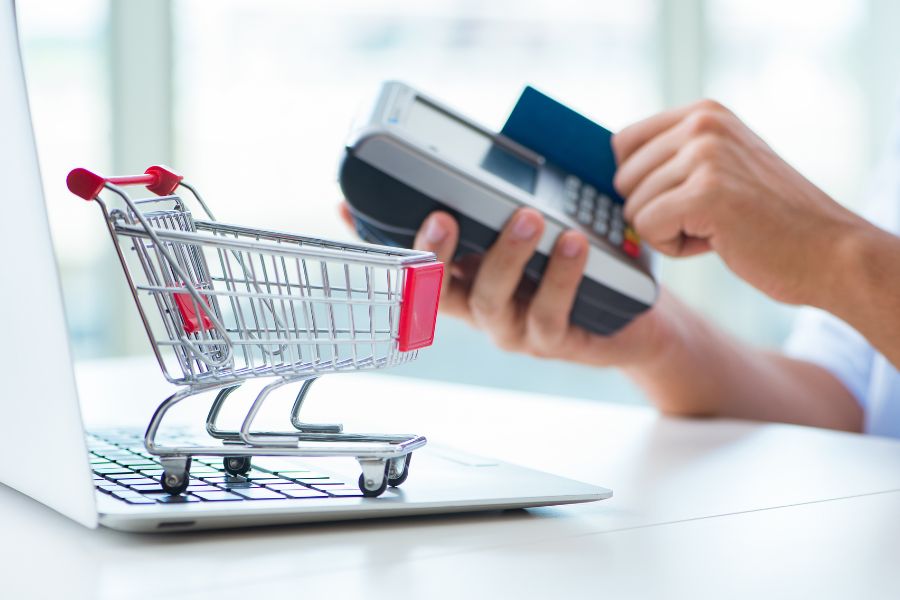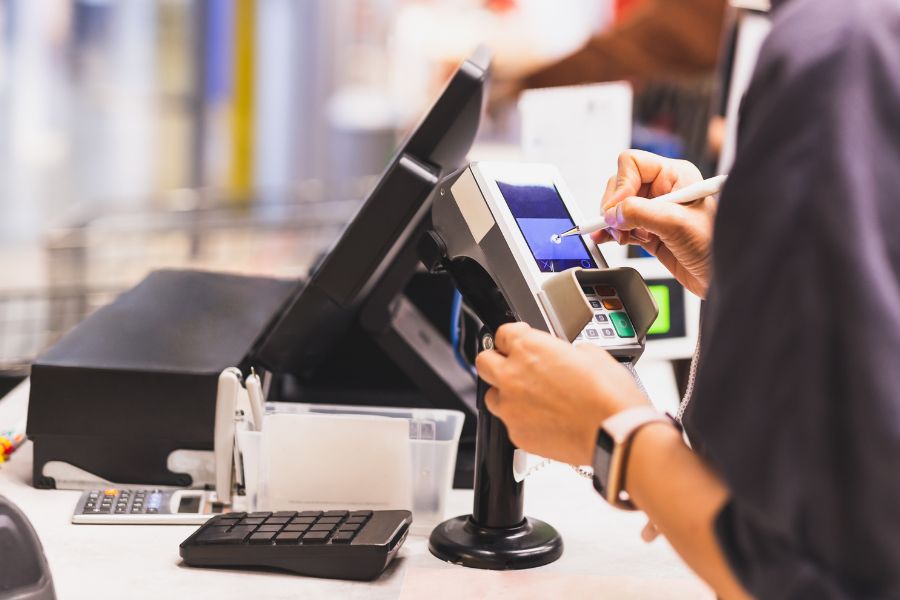This article delves into the powerful role of a food Point of Sale (POS) system in the food industry and how it can significantly impact revenue optimization for restaurants, cafes, and other food establishments. From seamless customer experiences to data-driven decision-making, we explore four key strategies that leverage the capabilities of a food POS system to boost profits and elevate business success in the dynamic and competitive world of food service.
Why Do We Need A Food Pos System To Optimize Revenue?
A Food Point of Sale (POS) system is essential for optimizing revenue in the food industry. It is a specialized software and hardware solution that facilitates and streamlines various processes in managing a restaurant, café, or any food-related establishment. Here are some key reasons why this system is crucial for revenue optimization:
- Efficient Order Processing: A food POS system enables faster and more accurate order processing. It eliminates the need for handwritten orders and reduces the chances of errors in taking down or processing orders. The quicker the orders are taken and delivered, the more customers can be served, increasing revenue.
- Improved Table Turnover: A food POS system reduces the time taken to complete a dining experience. This leads to faster table turnover, allowing the restaurant to serve more customers throughout the day, maximizing revenue potential.
- Enhanced Inventory Management: This system can track inventory levels in real-time. This feature helps restaurant owners and managers avoid overstocking or stockouts, which can lead to wastage or missed sales opportunities, respectively. Effective inventory management contributes to cost savings and prevents revenue loss.
- Upselling and Cross-selling: Many POS solutions offer features that prompt waitstaff to suggest additional items or upgrades to customers. For instance, when a customer orders a burger, the system might prompt the server to ask if they’d like to add fries and a drink for a combo deal. This leads to an increased average order value and, consequently, higher revenue.
- Accurate Pricing and Billing: A food POS system ensures that the prices of menu items are correctly entered into the system. It prevents undercharging or overcharging customers, which could negatively impact revenue and customer trust. Accurate billing also helps avoid disputes that might arise due to billing errors.
- Customer Data and Loyalty Programs: The system can store customer information and track their preferences. This data can be used to create targeted marketing campaigns and loyalty programs to encourage repeat business and customer retention. Loyal customers are more likely to spend over time, contributing to revenue growth.
- Integration with Other Systems: Many modern POS systems integrate with tools such as accounting software, payroll systems, and online ordering platforms. This integration streamlines operations, reduces manual work, and enhances overall efficiency, allowing the business to focus on revenue-generating activities.
- Real-time Reporting and Analytics: The food POS system provides detailed reports and analytics on sales, inventory, and customer behavior. This data-driven approach helps identify trends, popular items, and peak business hours, enabling informed decision-making to optimize revenue strategies.

4 Ways To Optimize Revenue With A Food POS System
Incorporating Seamless Experiences Thanks To POS Data
A food POS system collects valuable data about customer preferences, order history, and dining patterns. By leveraging this information, restaurants can create personalized and seamless customer experiences. Here’s how:
- Personalized Recommendations: Utilize the data collected by the POS to offer personalized menu suggestions based on the customer’s past orders or preferences. By recommending dishes they are likely to enjoy, you enhance their dining experience, leading to increased satisfaction and loyalty.
- Customization Options: POS data can also reveal common customizations made by customers to certain dishes. Use this information to offer pre-set customization options during the ordering process, making it convenient for customers to tailor their meals to their liking.
- Loyalty Programs: A survey conducted in late 2022 found that 70% of Americans regarded loyalty programs as a key determinant in earning their allegiance to their preferred brands. Implement loyalty programs based on the customer’s visit frequency and spending patterns. Reward frequent visitors with discounts or exclusive offers to encourage repeat business and build customer loyalty.
Reviewing And Reacting To Data Collected From POS
A food POS system generates comprehensive reports on various aspects of the business. Regularly reviewing and acting upon this data can significantly impact revenue optimization:
- Sales Analysis: Analyze sales reports to identify top-selling and underperforming items. Use this information to make informed decisions about menu updates, pricing adjustments, or promotional offers.
- Staff Performance: POS data can reveal individual staff members’ sales performance. Recognize and incentivize high-performing staff, while providing training or support to those needing improvement.
- Peak Hours: Identify peak business hours through POS data to ensure adequate staffing levels during busy periods, minimizing wait times, and maximizing customer satisfaction.
Optimizing POS Operations through Cloud Integration
Cloud-based food POS system offers several advantages over traditional, on-premise solutions. Embrace the cloud to optimize revenue in the following ways:
- Scalability: Cloud-based systems can easily scale to accommodate your business’s growth, whether in a single location or multiple branches. This flexibility allows you to expand without the need for significant infrastructure investment.
- Remote Management: Access your POS data and management tools from anywhere with an internet connection. This enables real-time sales and inventory monitoring, making it easier to respond to changing conditions and make data-driven decisions on the go.
- Automatic Updates: Cloud POS providers typically handle system updates and maintenance, ensuring your restaurant always benefits from the latest features and security patches without disruptions.
Enhancing Customer Experience with Targeted Up-Sell Opportunities at the POS
The point of sale is critical when customers have already made their primary selections. Companies prioritizing the customer experience outperform their competitors by 4-8%. Capitalize on this opportunity to boost revenue through strategic up-selling:
- Combo Deals: Prompt the staff to offer combo deals or upgrades to complement the customer’s order. For example, if they order a burger, the staff could suggest adding a side and a drink for a discounted price.
- Desserts and Add-ons: Highlight desserts or additional items that pair well with the customer’s order. Tempting displays or suggestive selling can encourage customers to indulge in extras they might have otherwise skipped
- Limited-Time Offers: Create urgency with limited-time offers available only at the point of sale. This tactic encourages customers to seize opportunities, increasing impulse purchases and overall revenue.
By effectively leveraging a food POS system and implementing these revenue optimization strategies, restaurants can enhance customer experiences, streamline operations, and boost profits, ultimately driving long-term success in a competitive food industry.
Conclusion
A food POS system is a strategic investment that can optimize revenue in the food industry. Businesses can enhance customer satisfaction and drive financial growth by providing seamless experiences, data-driven insights, and up-selling opportunities. Embracing this technology is essential for staying competitive and becoming culinary leaders in a dynamic market. If you want to learn more about the information in this article or have any further inquiries, please contact us.
ConnectPOS is a all-in-one point of sale solution tailored to meet your eCommerce POS needs, streamline business operations, boost sales, and enhance customer experience in diverse industries. We offer custom POS with features, pricing, and plans to suit your unique business requirements.



